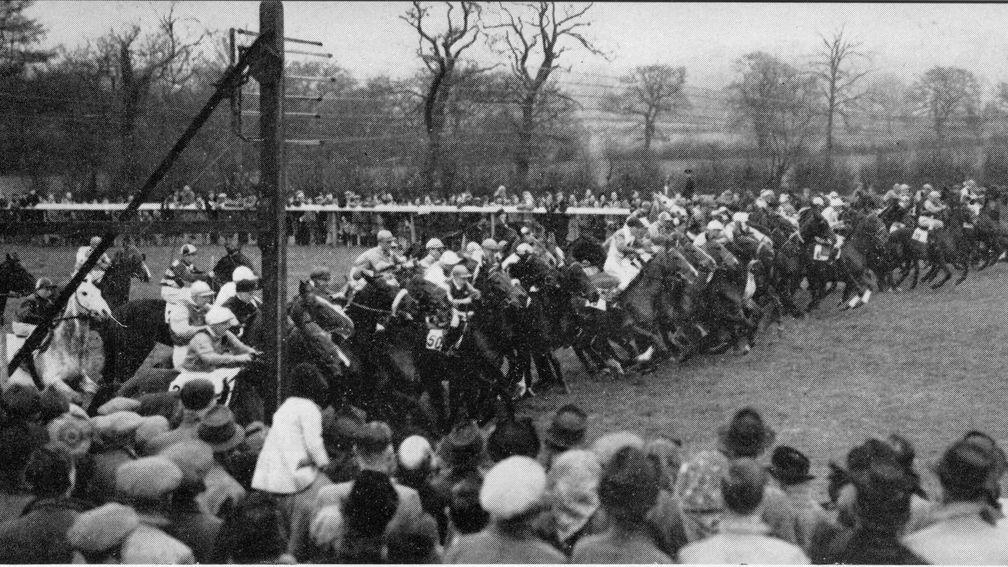The Lincoln: a show-stopper that once rivalled the Grand National
John Randall looks at the history of the Flat season curtain-raiser

First published on Wednesday, March 20, 2013
The Lincoln Handicap is a race with a special identity and has contributed greatly to British racing’s rich tapestry during its 160-year history.
The Flat season’s curtain-raiser used to dominate headlines for weeks on end and champions and Classic winners regularly took part, although it is now only a shadow of its former self.
The race was inaugurated at Lincoln’s Carholme racecourse in 1853 as the Lincoln Spring Handicap, won by Caurire, and was renamed the Lincolnshire Handicap in 1859.
It was reduced from 1m4f to 1m in 1855 when it provided the first of 11 wins in an astonishing 28-race campaign by Saucebox, whose other victories that year included the St Leger at odds of 40-1.
The Lincoln soon became one of the highlights of the year. The fact it opened the Flat season after the winter break overcame its disadvantages as a big-field handicap with an unfair draw that was routinely won by outsiders and was run at an unfashionable track which, in March, was usually bleak and wind-swept.
In terms of quality, the late Victorian era was the race’s golden age, as its roll of honour included Bendigo (1885), who won the inaugural Eclipse Stakes; Clorane (1896), whose weight-carrying record stood for 72 years; and Winkfield’s Pride (1897), second to Persimmon in the Ascot Gold Cup.
The most famous of all Lincoln runners was the great filly Sceptre, who was a close second before winning four of the five Classics in 1902. Vedas finished ninth in 1905 and won the 2,000 Guineas five weeks later.
The race had an international reputation and Ob, France’s champion two-year-old of 1903, won it in 1906 and 1907. Sir Gallahad (1924) and Tapin (1925) both won it ten months after landing the Poule d’Essai des Poulains; Tapin’s victims included Arc winner Parth.
Between the wars the Lincolnshire Handicap achieved a popularity that seems inexplicable to us. At that time public interest in jumps racing was confined mainly to the Grand National, which was run in the same week. The two races were coupled as the Spring Double, and solving that puzzle preoccupied punters for weeks on end.
Between the publication of the Lincoln weights and the race itself, The Sporting Life devoted more column inches to its market moves, gallops reports and riding arrangements than it did to the entire Cheltenham Festival.
It is significant that the 12 Lincoln winners from 1926 to 1937 were the horses immortalised as the runners in the board game Totopoly. Among them was Dorigen, who had been the champion three-year-old filly of 1932.
The race’s popularity was all the more undeserved because it was such a lottery. Most of the runners were unfit and the draw, which ante-post punters could not know, was crucial because an elbow in the Carholme’s ‘straight’ mile meant that horses drawn low were often cut off.
Lincoln racecourse closed in 1964 when the Levy Board decided to withdraw its subsidy. The Lincolnshire Handicap was transferred to Doncaster and renamed the Lincoln Handicap, although the draw remained a factor.
The race has long been a medium for heavy gambles and it has passed into racing folklore how John Oxley’s travelling head lad Barry Hills brought off a coup on Frankincense in 1968 that enabled him to start his own training career the following year.
The steady post-war rise in the status of jump racing, in particular the Cheltenham Festival, was matched by a decline in the Lincoln, whose last French-trained winner was Alec Head’s Nahar in 1954.
This process was accelerated by the creation in 1971 of the Pattern, which made handicaps in general less important, and by the advent of all-weather racing in 1989.
Now Flat racing in Britain takes place 12 months a year the Lincoln no longer marks a new beginning and it is overshadowed when the Dubai World Cup is run on the same day.
It is now just another nice Class 2 handicap enlivened only by the involvement of a star like Dame Judi Dench, joint-owner of the 2008 winner Smokey Oakey. The race is living on past glories.
Members can read the latest exclusive interviews, news analysis and comment available from 6pm daily on racingpost.com
Published on inRP Classics
Last updated